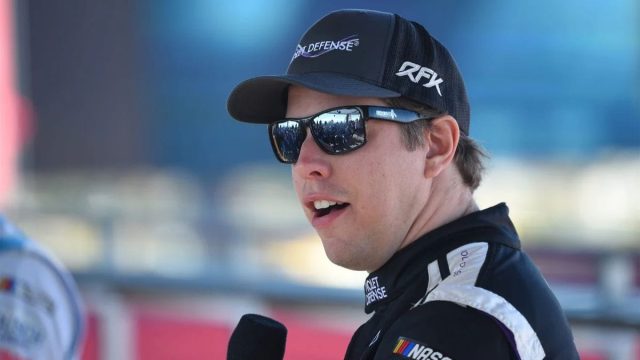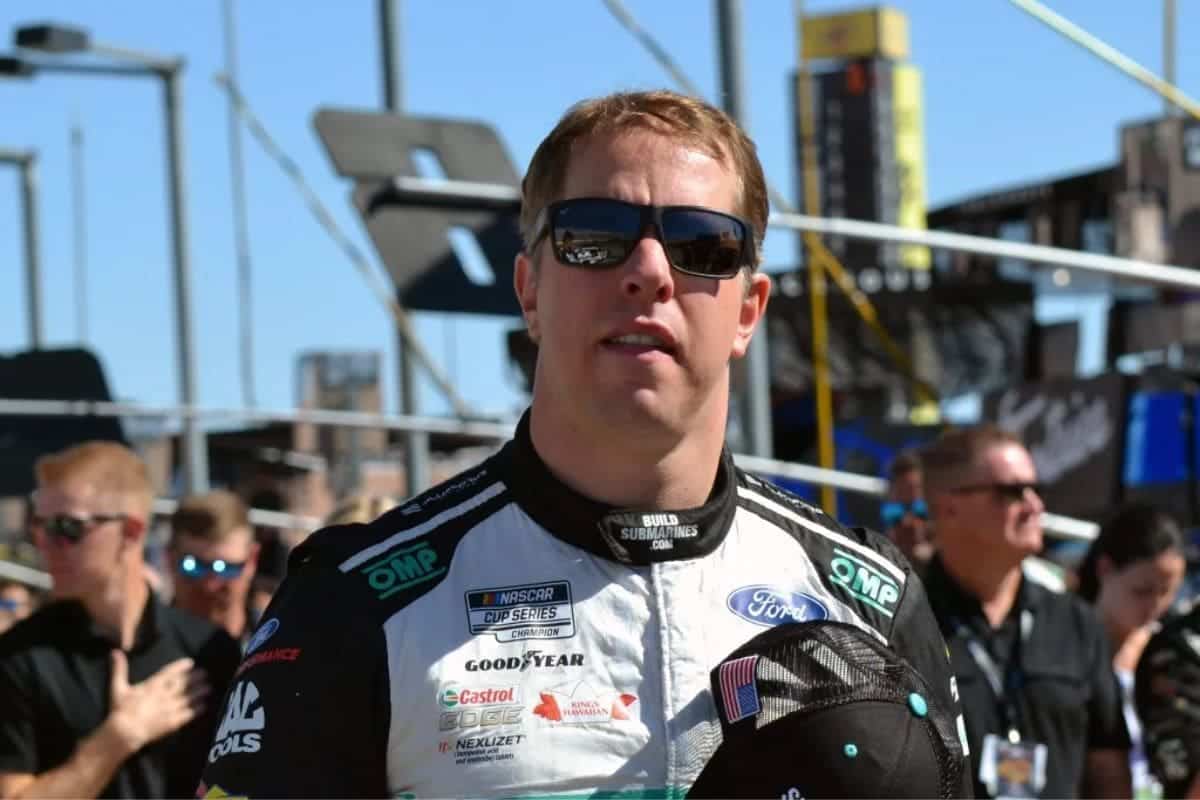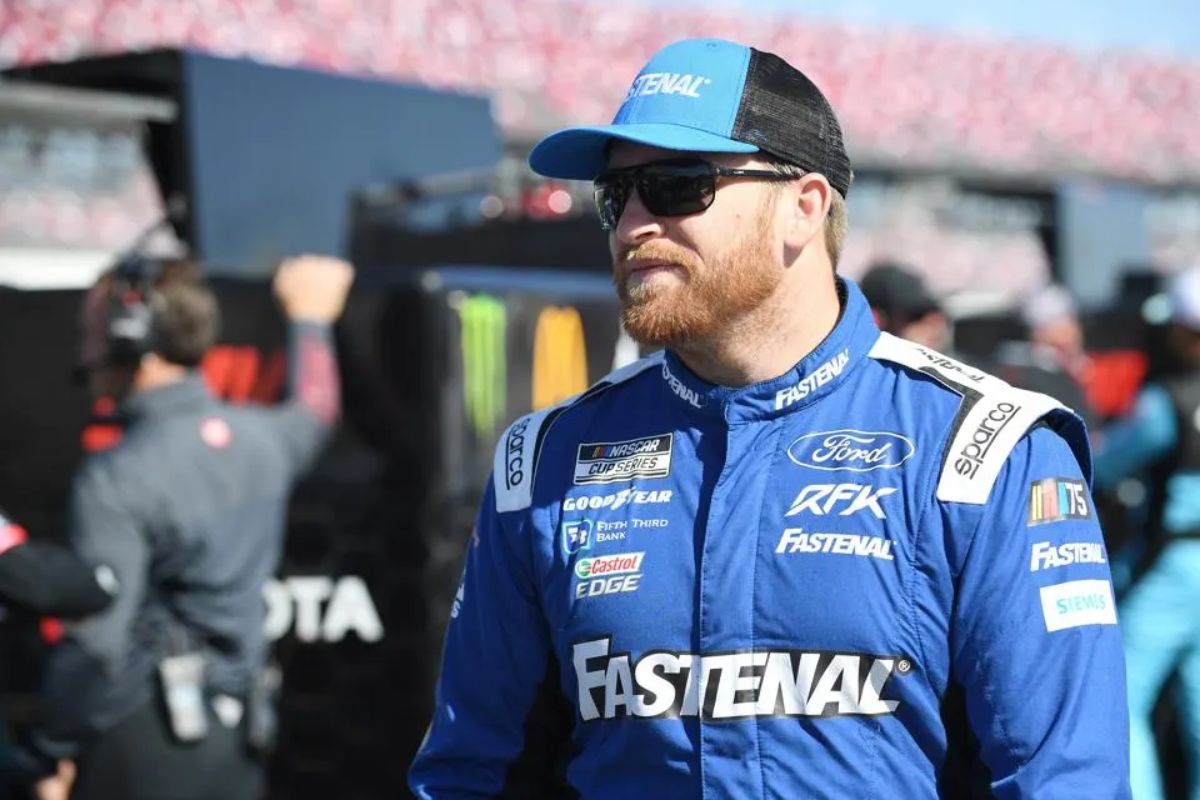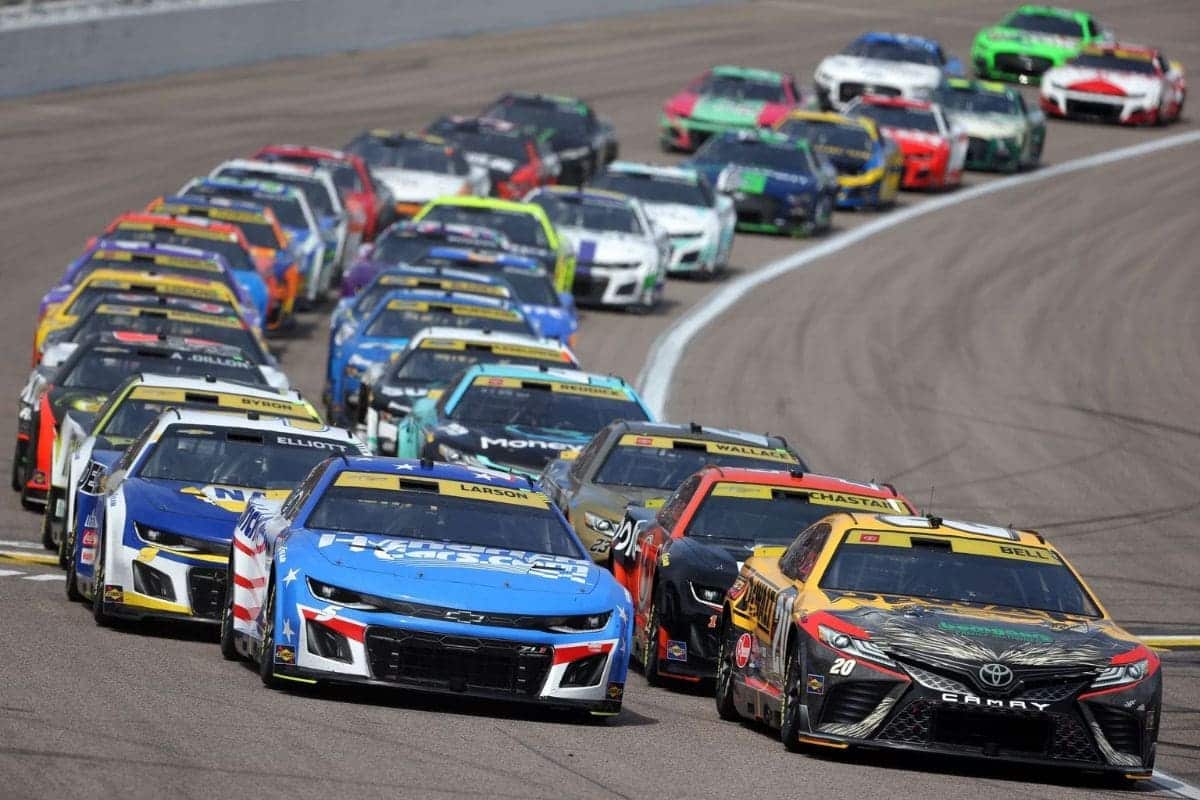Brad Keselowski Shares Insights: Brad Keselowski‘s recent insights on NASCAR’s new charter agreement mark a crucial shift in the sport’s financial landscape. By reducing the dependence on sponsorship from 90% to 75% of team budgets and increasing race purses and external revenues to 25%, the new deal aims to promote greater economic sustainability. Keselowski’s perspectives, gained from his dual role as driver and team co-owner at RFK Racing, shed light on the intricate balancing act needed to achieve a more stable 65-35 funding ratio. As the sport navigates this significant phase, the implications for teams and drivers are profound, raising several key questions about the future trajectory of NASCAR.
Key Highlights
- Keselowski acknowledges the new NASCAR charter deal improves financial sustainability by reducing teams’ reliance on sponsorship dollars.
- The agreement shifts the funding balance, increasing race purses and outside revenues to 25%.
- Keselowski sees the shift as a step toward economic stability, aiming for a potential 65-35 ratio in the future.
- The new charter deal enhances teams’ financial stability, fostering long-term competitiveness and growth.
- Keselowski believes the incremental funding change will allow teams to focus more on performance and less on securing sponsorships.
NASCAR’s Latest Charter Agreement and Funding
The latest NASCAR charter agreement represents a significant shift in the funding dynamics for racing teams, offering a delicate balance between sponsorship revenues and race purses that promises to improve financial sustainability and competitive performance. This agreement marks a notable departure from the funding model prevalent two decades ago. Historically, teams relied heavily on sponsorship dollars, which accounted for about 90% of their budgets, with race purses and other revenues making up a mere 10%.
“If I go back in time 20 years ago, the dynamic was, as far as funding a team, 90 percent sponsorship-based, 10 percent outside revenues, which might be race purse or outside revenues.” -brad
As Brad Keselowski explains, the landscape today has evolved with sponsorship still playing a dominant role but reduced to 75%, while race purses and outside revenues have increased their share to 25%. The new charter agreement aims to push this further, potentially achieving a 65-35 ratio. This incremental shift, though seemingly modest, carries profound implications for the economic stability of NASCAR teams.
“And if you take a snapshot of where we are today, maybe it’s closer to 75 sponsorship, and 25 percent purse or outside revenue so to speak. It appears the new charter agreement is going to get that somewhere closer to 65-35, which is a shift that can’t be understated.”
“But the reality of that is it still doesn’t fully flip the script so to speak. It’s just a step in the right direction.” – brad
From an insider’s perspective, this evolution in funding is more than a mere reallocation of financial resources; it is a strategic move to enrich the viability of teams, ensuring they can compete effectively on the track. The increased share from race purses and outside revenues reduces the overwhelming dependency on sponsorship, which can be volatile and subject to broader economic fluctuations.
This shift is not just about balancing the books; it is about creating an environment where teams can invest more confidently in technology, talent, and overall race performance. By securing a more stable and diversified revenue stream, the new charter agreement sets the stage for a more competitive and financially resilient NASCAR landscape.
RFK Racing and Keselowski’s Perspective
From an insider’s viewpoint, Brad Keselowski’s observations regarding Chris Buescher’s developing performance and chances of qualifying for the playoffs this season present a captivating narrative on the tactical dynamics within RFK Racing. Keselowski’s tenure as both a driver and team co-owner has given him a distinctive vantage point, allowing him to analyze the subtle complexities that could define RFK Racing’s trajectory this season.
The current season has turned the tables for RFK Racing, sharply contrasting with the previous two years. Keselowski, a perceptive observer and experienced champion, has secured a victory, while Buescher is yet to achieve success on the track. This role reversal highlights the unpredictable nature of NASCAR and the continuous evolution in team dynamics. Keselowski’s analytical perspective sheds light on the strategic shifts necessary for Buescher to regain his winning form.
Reviewing Buescher’s past accomplishments, one recognizes his impressive feats in 2022 and 2023. He secured the Southern 500 in 2022 despite not making the playoffs, demonstrating his potential in challenging situations. Last season’s consecutive wins at Michigan and Richmond, followed by a successful Daytona performance, showcase his ability to excel at crucial moments. These victories propelled him into the playoffs, unveiling a pattern of resilience and strategic insight.
Keselowski’s viewpoint highlights the significance of adaptable strategies and steady performance. The insights from Buescher’s previous seasons offer a guide for maneuvering the current obstacles. As RFK Racing aims to enhance their performance, Keselowski’s observations emphasize a fundamental reality: in the NASCAR, continuous evolution and strategic foresight are crucial for maintaining success.
Chris Buescher’s Current Performance
Brad Keselowski’s recent win at Darlington highlights an essential contrast to Chris Buescher’s near-miss performances this season, emphasizing the intense competition and razor-thin margins defining Buescher’s current position in NASCAR. While Keselowski’s victory at Darlington displayed his ability to seize opportunities with precision, Buescher’s season has been characterized by heart-wrenching closeness without the ultimate payoff.
Buescher’s journey this season has been a reflection of both skill and misfortune. Few drivers in NASCAR history have come as close to tasting victory as Buescher without actually securing a win. His performances have been marked by consistent top finishes, often finding himself in the midst of competition as the laps wind down. Yet, the elusive top-tier finish has remained just out of reach—an indication of the unforgiving nature of the sport.
In examining Buescher’s current performance, one must acknowledge the intricate interplay of strategy, timing, and pure racing expertise. Each race unfolds with its unique set of variables, and Buescher has shown a keen ability to navigate these complexities. His near-wins reflect not a lack of capability but rather the small, often uncontrollable factors that differentiate victory from the runner-up position.
Furthermore, Buescher’s resilience in the face of near-misses speaks volumes about his mentality and dedication. Consistently being in the running highlights his status as a formidable competitor, one who is on the verge of breaking through.
Keselowski on Buescher’s Chances
Keselowski’s insightful commentary on Buescher’s chances highlights the unpredictable and often unforgiving nature of NASCAR, where even the most reliable and skillful performances can fall short without a stroke of luck. Keselowski remarked, “I think it shows you how fickle a sport this is. Chris has had some really great races. He’s on a good stretch right now of competitive runs.”
Chris Buescher’s recent performance has been a testament to his steadfast dedication and skill. From the sharp turns of Sonoma to the high-speed straights of New Hampshire, Buescher has demonstrated that he is a formidable contender.
Despite these commendable performances, Buescher has faced the harsh reality of racing, where outcomes often hinge on factors beyond a driver’s control. Keselowski pointed out, ‘Maybe Gateway didn’t quite go the way he wanted it to… but at Kansas, he got as close to winning as you physically can [without winning].’
Maybe Gateway didn’t quite go the way he wanted it to, but if you look at Sonoma, if you look at New Hampshire, even looking back at Charlotte where he ran really well, and at Kansas where he got as close to winning as you physically can [without winning]. And Darlington, you know.”
“He’s on a stretch of races where he could win any week, he’s doing all the right things, but hasn’t caught any breaks. When he does, look out.” – brad
RFK Racing’s Future Prospects
RFK Racing’s future outlook seems promising, as the team has shown significant growth and innovation over the past few years, positioning both of their cars as potential contenders for Victory Lane in the same season. This path of progress has been marked by strategic investments in technology, a focus on performance analytics, and a renewed commitment to driver development. Brad Keselowski’s expertise and leadership have been crucial in this resurgence, fostering a culture of excellence that pervades every aspect of the organization.
The team’s ability to ‘hit on things’ suggests a mastery in fine-tuning their performance variables, from aerodynamics to pit strategy. This is no easy task in NASCAR’s highly competitive landscape, where small gains can be the difference between a podium finish and mid-pack obscurity.
Over the last few seasons, RFK Racing has clearly come a long way, systematically addressing their weaknesses and capitalizing on their strengths.
What stands out is their resilience and adaptability. RFK Racing has not only kept pace with the rapid technological advancements within NASCAR but has also been at the forefront of integrating these innovations into their race strategy. This has resulted in a more consistent performance across varying track conditions and race formats, highlighting their readiness to clinch multiple victories in a single season.
However, the ultimate test of their progress will be getting both cars into Victory Lane. This goal represents not just a milestone but a validation of their extensive efforts. As RFK Racing continues to build on its momentum, the motorsports community keenly anticipates their next breakthrough.
News in Brief: Brad Keselowski Shares Insights
The new NASCAR charter agreement signifies a significant shift in the financial architecture of racing teams. It reduces dependency on sponsorships and enhances revenue from race purses and external sources. Keselowski’s insights highlight a strategic move towards long-term economic stability, aiming for a more balanced funding ratio.
With RFK Racing’s promising performance, especially through Chris Buescher, the future prospects appear bright. This aligns with the changing financial landscape envisioned by the latest agreement.
ALSO READ: Brad Keselowski Feels Pressure of Chris Buescher’s Playoff Stress in NASCAR



